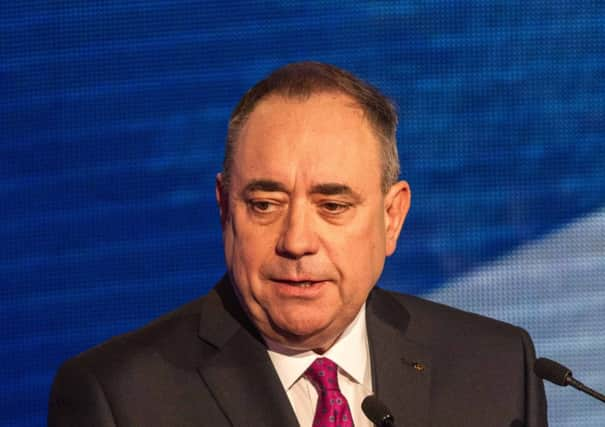Leaders: Question is what people make of answers


The bigger question is whether the Scottish public is significantly better off in terms of information about the big issues surrounding independence.
So a great deal of last night was probably predictable. It took Mr Salmond just seconds to bring up the success of the Commonwealth Games as an indicator of what relatively small countries can achieve, and Mr Darling did nothing to dispel the Better Together “Project Fear” tag by opening with “there is no going back” before talking about security and trade advantages to the Union.
Advertisement
Hide AdAdvertisement
Hide AdAnd the two probably did not do much to enhance the reputation of politicians in general, with both obviously avoiding questions, Mr Salmond on his economic Plan B and Mr Darling on whether he thought Scotland could be a succesful independent country in an elaborately constructed ambush from Mr Salmond.
For a debate that looked too long on paper it was actually surprising how few topics got a reasonable airing. If time allocated is any indicator of interest or concern among the public then there is no doubt that the post-independence currency is the stand-out issue.
The real shame here is that we really are no further forward in terms of answers over the many questions, but are left with Mr Salmond’s no doubt honestly held belief that he would negotiate a currency union after a Yes vote, despite what the rest of the UK currently says and the political difficulties that would raise with voters in the rest of the UK faced with the prospect of the Bank of England as the lender of last resort to what would have become a foreign country.
It is certainly worth considering the topics that were not raised or were only touched on briefly. The question of access to Europe was never fully explored, and despite the odd mention from Mr Salmond, nuclear weapons were not really brought up, no doubt much to Mr Darling’s relief.
There can be no doubt that TV debates are now a feature of electoral campaigns, and although no more than a modern extension of the town hall hustings there is definitely more at stake in a single performance given the size of the electronic audience.
Whether David Cameron’s ducking of the debate was a wise political move or simply self-interest and damaging to the cause will never be known.
Perhaps the most telling testament to the state of the nation came from a member of the audience who said there was not enough clear information before the public who were having to “wade through the political spin”. That being the case, then on that one, crucial criterion there were no winners last night.
Policing public confidence
POLICE within Britain have always taken great pride in the fact that their officers are unarmed, and that the carrying of firearms is kept to the minimum necessary to ensure the protection of the general public. The public shares that same pride.
Advertisement
Hide AdAdvertisement
Hide AdSo it should have come as no surprise to Kenny MacAskill, the Cabinet secretary for justice, that concern has been raised across Scotland at what appears to be the use of armed officers on routine policing assignments.
Mr MacAskill made a statement to Holyrood yesterday in response to these concerns. But he used his appearance before MSPs to announce a solution to a nonexistent problem.
He said that in future the chief constable of Police Scotland would have to inform him if the percentage of armed officers ever reached 2 per cent. Currently the figure is 1.6 per cent.
So not only did Mr MacAskill therefore give the green light for a 25 per cent increase in the number of armed police officers on Scottish streets, free of political interference, he failed to address the real reason a ministerial statement had been called for.
Few people question the need for armed police as part of the operational capabilities of a modern force. What they do not like to see is armed officers sent to a disturbance at a fast food outlet, or a protest against violence in Gaza, as were reported recently.
When a single Scottish police force was first mooted this newspaper gave it qualified welcome. Our qualification was that all involved had to demonstrate that democratic accountability – at a national and local level – would not be compromised.
Those concerns now risk undermining public confidence in Scottish policing.